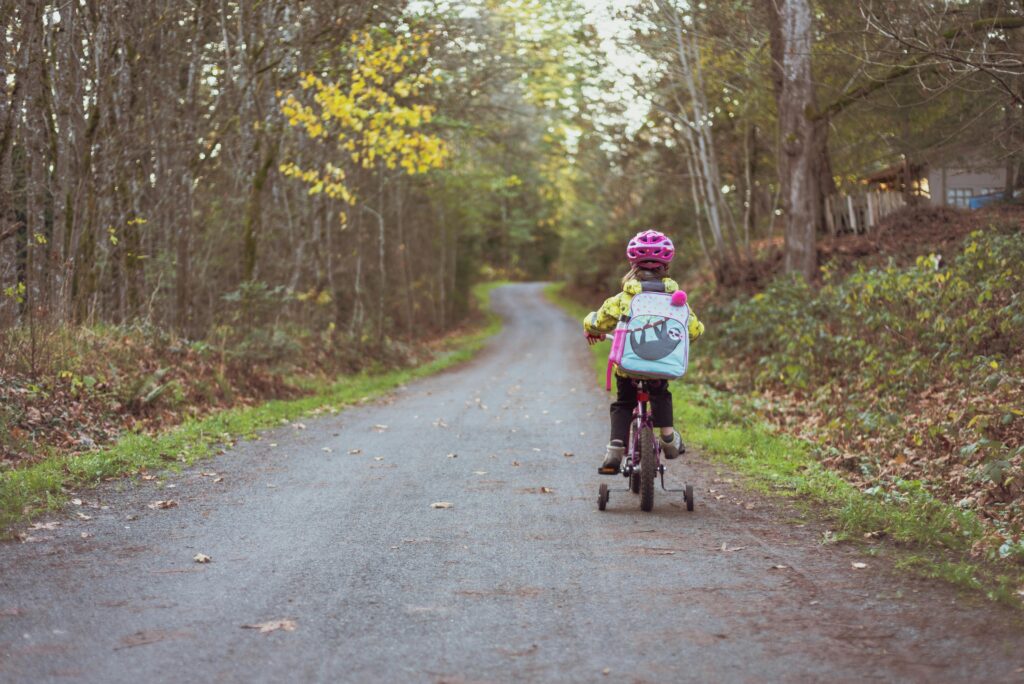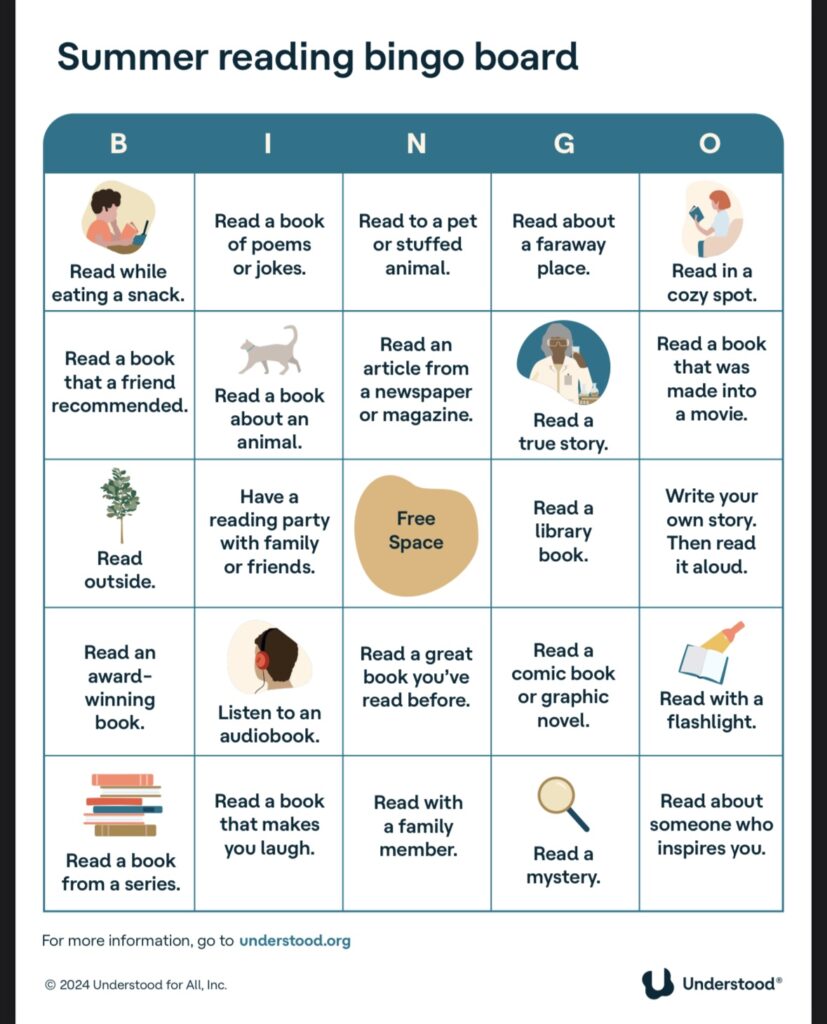What is “Summer Slide”?

Have you ever even heard of this term before?? I just finished a Zoom meeting with a gal who has three adult children and nine grands–I asked her if she had ever heard of the term….guess what, she had not! So you are not alone. According to Scholastic, a whopping 48% of parents (who have children ages 6-17) have heard of “Summer Slide”.
Image from Pexels
Should you worry if your child takes the entire time ‘off’ during the months of June, July, and August?
Short Answer: There is no short answer!
A Little Longer Answer with some details:
- The data does not lie. If a student is in the 50th percentile academically, that student loses some ground in both reading and math across all grade levels. Seventy to 78% of students lose ground in math K-grade 5, while 62% to 73% of students in K-grade 5 lose ground in reading. Students transitioning between elementary and middle school years (summer between grades 5 and 6 to the tune of 84% of students) experience losses of greater magnitude. Additionally, there is no data to assume that students in low-income areas often experience greater learning loss when school is out for the summer. In fact, learning loss is not related to race, IQ, or gender. Rather, the more a student learns in a particular year of education, the more likely and greater the learning loss will be over the summer months.
- It depends. If your child has never experienced difficulty in terms of academic achievement, the likelihood of negative effects of taking time off during the summer should not play too large a role over the course of a child’s K-12 education (my own experience validates this). That said, the first few weeks into a new school year are spent learning routines and reviewing/reteaching material that had been taught in years past. This is well known in education circles. Anywhere from 3 to 6 weeks is spent reviewing.
- BUT, if your child has struggled to learn to read, write, spell, and do mathematics…well, some children can use the summer to reboot and gain some ground given high quality instruction, whether it be a school, privately sponsored, or home effort. Continuation of learning is crucial for this population.
Literacy (Reading/Spelling/Writing/Speaking) and Numeracy (Mathematics) are NOT like ‘riding a bike’!

Image by vladvictoria from Pexels
Many kids need to practice their skills in order to retain and maintain them. Imagine, if you will, your child’s soccer coach’s reaction if you tell him/her that your child will not be at practice for the summer!! I don’t want to be part of that reaction. Many coaches would and do say, so I’m told, “You are no longer on the team!”
Let me share an anecdotal experience I had with two of my students who most definitely experienced summer learning loss. Both students (yes, they both had learning issues and were my private tutorial students) were in high school and had attended camp and/or went on vacation for a good portion of the summer. Both had to read a novel and be prepared to take a test on it on the first day of school (personally, I think this is unfair practice!). So, a couple of weeks before the start of the school year, they again began attending tutorial sessions with me. They independently exclaimed, “Mrs. J.! I finished my summer reading (you will see they were not truly ‘reading’!) while I was at camp/vacation.” I was delighted to see them so excited about reading….that is, until I asked them to do the following, as high school students:
- Orally retell the book in summary form
- Discuss the main characters, conflict, resolution
- Discuss the ‘takeaways’—themes covered, lessons learned
- Cite any new vocabulary they may have learned
You guessed it! I got a couple of blank stares with only two weeks to go until the first day of school. Let me importantly add that these two students had literally practiced the above listed skills when reading anything school related and/or other articles with me throughout the previous school year or two.
These two students obviously suffered significant learning loss when left to their own devices. I did what any good tutor would do. We got right back to work. I retaught these skills, and assigned a good bit of independent work to get them both up to speed so that they could start the school year successfully (at least in English class!). These two kiddos learned a good lesson for sure, as they were so surprised to learn they had to reread, having merely ‘read the words’ without doing the simultaneous ‘thinking about the words’.
10 Tips Parents Can Try to Avoid “Summer Slide”
- Reading, writing, and math practice don’t have to be completed while sitting at a desk or in front of a computer. Learning is learning—so get outside and improve your kids’ vocabulary, background knowledge, problem solving, and mental calculations ability using the environment. Just look around—some examples: How tall do you estimate the pine tree to be? How short are the flowers? How many petals do you estimate on this gerbera daisy? Can you read the signs we are passing as we drive? Write down as many colors as you can think of. Well, here are some vocabulary words just about these 3 questions: estimate, petals, gerbera daisy, pine tree.
- Take in-person or virtual field trips. Click on the link and you will be directed to many options. Go to the zoo, aquarium, planetarium, a farm, the beach, take a ferry, a bus, or even go to the grocery store and ask your child to name and read the signs in the produce aisle. You would be surprised at how many kids need help in naming various fruits and veggies—especially true since so many of us opt for online ordering and even delivery these days. Again, oral vocabulary learning is king. An added bonus: have kids write about their experiences. Many children enjoy writing letters to relatives who live in different parts of the country. Take advantage of more free time.
- Let your kids lead the way. What are their interests? If they like sports, have them explore their favorite players’ statistics and do some math surrounding a game or two. If they like theater, work on writing a play and making costumes. If they are musical, create a playlist with educational songs (for the young ones), and teach your older kids something about the history of music with examples from each time period. If they like screentime, use this interest to your child’s advantage. Many excellent educational websites exist appealing to all age groups in all subject areas. Make sure they are aligned with the Science of Reading. The on-line Sortegories is a great one, and here is a link to lists of websites to check out.
- Do your kids like to cook? Reading and following a recipe offers so many opportunities for learning from reading to measurement (using measuring cups and spoons, equivalencies, doubling the recipe, etc.)…and EVERYONE loves to eat!!
- Read TO and WITH your kids! Sharing a story is always FUN!! Make it a point to set aside time to sit with your kids. Reading books with kids is a great way to improve social-emotional learning and create bonds with your kids that will stay with both of you forever. Don’t know what to read? Go to the LIBRARY. The children’s librarians will be delighted to help you. Check out the great book, How To Raise a Reader. Remember that especially young children can understand far more than they are able to read themselves. For example, Charlotte’s Web is often read to children in first grade even though the text is written at a much higher grade level (approximately the level of an average 4th grader). It’s a good time to read my new book , Calling All Neurons! How Reading and Spelling Happen with your kids, which explains how the brain learns to read, spell, and write.
- Use a Summer Reading Bingo Board, courtesy of Understood! Who doesn’t like a game? And, oh yes, PLAY GAMES! Many games offer opportunities to practice reading, math, and problem solving/strategy skills. Some to think about: Connect Four, Battleship, Trivial Pursuit (yes, adds to vocabulary and background knowledge), Monopoly, Code Names (for older kids), Scrabble, Boggle, etc.
- As you can, institute a ‘reading time’ for your family—when you read (you serve as a role model), and everyone in your house reads something—could even be a graphic novel, magazine, or comic book. The more one reads, the better. Let your child’s mind ‘bloom where it is planted’ and plant a lot of books!!
- Do you like podcasts? I bet you do. Well, so do your kids. Check out some good podcasts recommended for kids. Kids need to practice their listening skills too. Here are just a few to choose from: But Why: A Podcast for Curious Kids • Smash, Boom, Best • The Two Princes • Ear Snacks • The Past & the Curious • Book Club for Kids • What If World • Wow in the World.
- Take up a new hobby or interest requiring some reading and/or math such as a building project (think following instructions for Lego), making paper airplanes, gardening, origami, sudoku, Wordle, etc.
- Finally, whatever you choose, have FUN!! Nothing can replace creating summer FUN and MEMORIES.
“Bloom where you are planted! Read more, practice reading, learn new vocabulary, and expand background knowledge.” TIP #7
Image of unknown origin, but it is a GOOD ONE!


Sample Reading Bingo Board–works better than mandating reading time. TIP #6
Image from Understood.org


You know the old adage, “If you don’t’ use it, you lose it.” Well, it’s true! Make the most of the summer! When not reading, encourage your kids to just sit on the grass and look up at the trees swaying in the breeze amongst the clouds–this is also good for kids’ brains!
